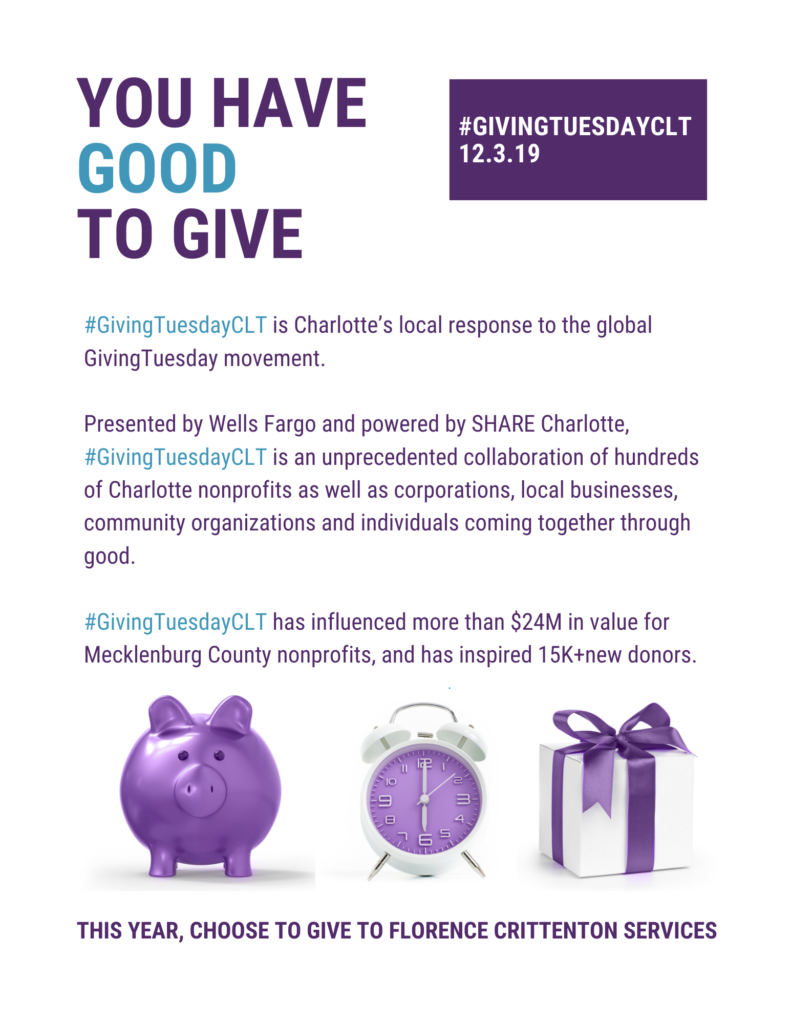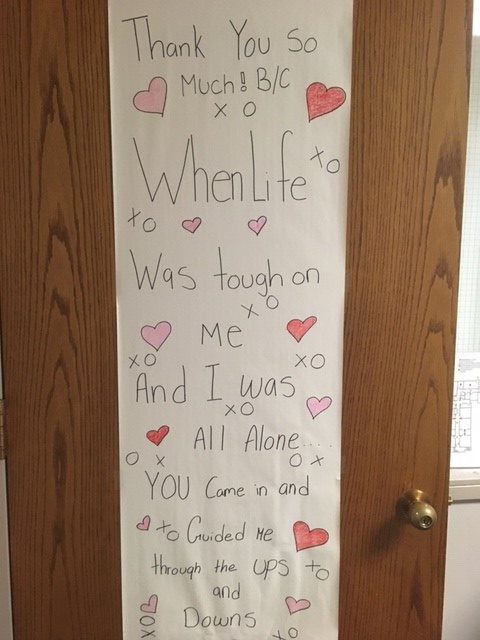Florence Crittenton Reflection
My time at Florence Crittenton Services has been so short but so rich. With zero experience working at a nonprofit like this, I was not sure what to expect. I knew my role at Caldwell Presbyterian Church was a “social justice” intern, but I had no idea how that would play out in my daily tasks at my work placement. I certainly didn’t anticipate helping write a grant, volunteering with clients at other service organizations, o r leading a staff training session. Over the last several weeks, however, I observed how the struggle for social equity, the services offered at FCS, and my own background are all entwined. One of the first significant learning experiences happened when Sarah asked me to research the school zones around the new FCS location (since moving locations means clients may be students from a different neighborhood). This search led me to the maps of the Charlotte-Mecklenburg school district, and I was surprised by what I saw. The zones drawn in the district had shapes that didn’t make any sense. The zones had been gerrymandered and manipulated so much over the years that several of them snaked around corners or tapered off unexpectedly. This inspired me to learn more about racial and economic isolation in Mecklenburg county neighborhoods, and how individual school and neighborhood demographics are affected by this. I discussed the topic of racial and economic disparity in Charlotte when I led a staff straining at FCS on social justice near the end of the summer. I tried to make this experience interactive with the staff, while also pulling in new concepts that they were unfamiliar with. In this training I explained the difference between equality and equity through a hands-on scenario. The group also went over various “hidden rules” of class structures and how these rules affect the decisions each person makes. More than anything, I learned about healing at FCS. On one afternoon, I was paged to the cafeteria so that I could play an instrument in a therapeutic drum circle with visitors, staff, and clients. This required me to be vulnerable in front of strangers, which I did not love at first. As an introvert, I’m not one to frequent free-spirited percussion jams. I can say now that this experience was incredible! The beats of each instrument were soothing, in a peculiar way. All participants were in sync in their drumming – even if it got silly at times. I was so glad I got to join in; it was a creative avenue to release any emotions and restore connectedness within a group. One day, I sat on a clinical call in which a group of social workers and other staff sat around a table and went over a case study of one particular client. In discussing a plan for treating this client , I understood just how difficult and troubled this resident was. I could see how each person around the table was worn out with a full schedule. And yet, light broke through. These staff members were so exhausted from this client, but something happened that shifted the atmosphere of the room. When prompted by the expert on the other end of the call, each person at the table named something about this worrisome client that they genuinely liked or appreciated. In that moment I understood that despite every difficulty with the resident, these care providers recognized that she was strong and resilient and beautiful and loved. I felt it. I also felt that they had been called to this work by God. I am drawn to the work of chaplaincy/pastoral care in healthcare systems and trauma centers, so I tried to soak in as much of this as I could. Seeing trauma-responsive care in action has motivated me to learn more about that field of work; I was inspired. I look forward to finding a calling where I can bring as much to the table. In a place like Florence Crittenton, it is impossible to ignore these glaring inequities. It is also impossible to ignore the overwhelming acts of restorative justice (as opposed to acts of mere clarity) that take place there every day. It has been a privilege to observe how FCS partners with young women who have been mistreated and misunderstood, and empowers them to cultivate true agency in their lives.
Elea Forester Social Justice Intern July 2019


